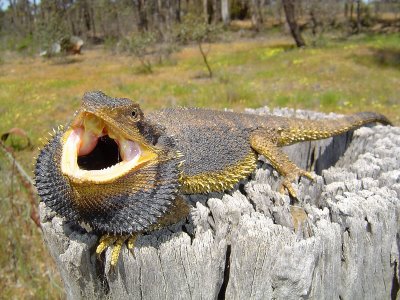10 Things You Need to Know Before Adopting a Bearded Dragon
10 Things You Need to Know Before Adopting a Bearded Dragon
Bearded dragons are fascinating creatures that make great pets. They are friendly, easy to care for, and have a unique appearance that is sure to turn heads. If you are considering adopting a bearded dragon, there are a few things you need to know before making your decision. In this article, we will discuss ten things you need to consider before bringing a bearded dragon into your home.
1. Bearded Dragons Are High Maintenance Pets
Bearded dragons are not like cats or dogs, which require minimal maintenance. They need specialized care and attention to thrive. You will need to provide them with the right kind of enclosure, temperature, and lighting, as well as a carefully balanced diet.

2. Bearded Dragons Can Live Up to 20 Years
Bearded dragons are a long-term commitment. They can live up to 20 years in captivity. Make sure you are prepared to care for them for their entire lifespan.
3. Bearded Dragons Need a Large Enclosure
Bearded dragons need a spacious enclosure to roam around in. A single adult bearded dragon needs at least a 40- gallon tank, with a secure lid. It should be big enough for them to move around and stretch out, with different levels and hiding spots.

4. Bearded Dragons Need the Right Temperature and Humidity
Bearded dragons are ectothermic, which means they rely on external heat sources to regulate their body temperature. They need a basking spot with a temperature between 95 and 110 degrees Fahrenheit, as well as cooler areas for them to retreat to. You will also need to keep their enclosure humid, with a humidity level between 30% and 50%.
5. Bearded Dragons Need Proper Lighting
Bearded dragons require the right kind of lighting to maintain their health. They need both UVB and UVA lighting to help synthesize vitamin D3 and regulate their circadian rhythms. The lighting should be on for 10 to 12 hours a day, and replaced every 6 to 12 months.

6. Bearded Dragons Are Omnivorous
Bearded dragons have a varied diet that includes both insects and vegetables. Adult bearded dragons should have a diet that is 80% vegetables and 20% insects. They should be fed a variety of fruits and vegetables, such as collard greens, kale, and carrots, as well as crickets, mealworms, and other insects.
7. Bearded Dragons Can Be Tamed with Proper Handling
Bearded dragons are generally docile and can be tamed with regular handling. They are not aggressive and can be a great pet for children. Make sure you handle them gently and provide them with a stress-free environment.

8. Bearded Dragons Shed Their Skin Regularly
Bearded dragons shed their skin regularly as they grow. This is a natural process that can take several days to complete. Make sure you provide them with a moist hide to help with the shedding process.
9. Bearded Dragons Can Get Sick
Bearded dragons can get sick like any other pet. They are susceptible to respiratory infections, parasites, and liver disease. Make sure you take them to a reptile veterinarian if you notice any signs of illness.

10. Bearded Dragons Need Social Interaction
Bearded dragons are social creatures that require interaction with their owners. They enjoy being held and petted and can form strong bonds with their caretakers. Make sure you have time to socialize with your bearded dragon every day.
Conclusion
Adopting a bearded dragon can be a rewarding experience if you are prepared to provide them with the care they need. Make sure you have the space, time, and resources to care for a bearded dragon before bringing one home. If you are a beginner, do your research, and consult with a reptile veterinarian to ensure you are doing everything right. With proper care, your bearded dragon can be a wonderful addition to your family.
